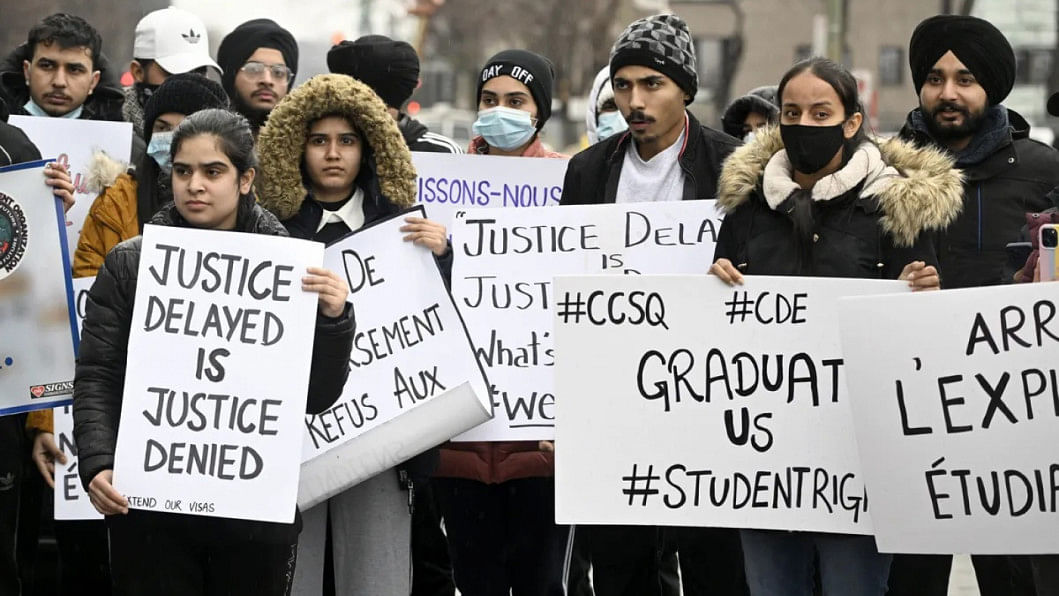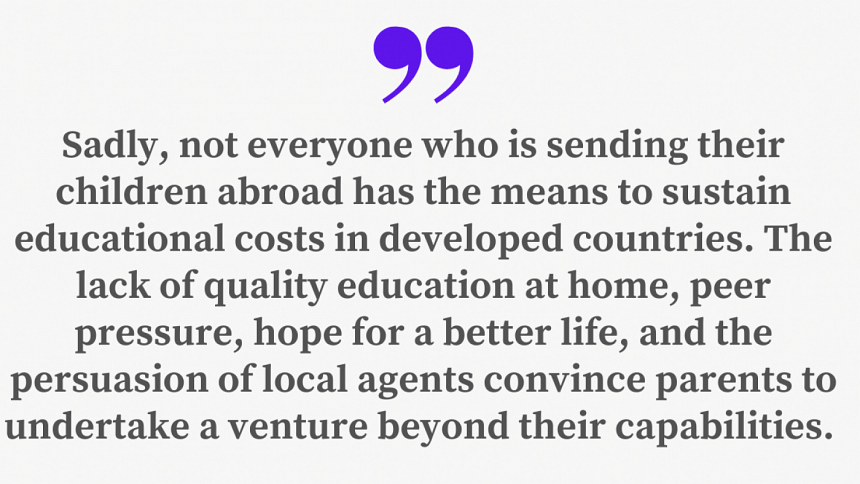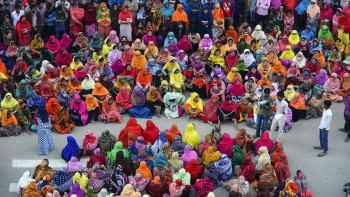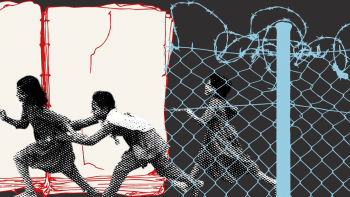Spending All for Nothing

"In the midst of every crisis lies great opportunity" – this adage, credited to Albert Einstein, is shared by the Chinese who have the two-part word "wei-jei" to suggest danger and opportunity in any moment of crisis. However, the silver lining implied here says little about the cloud of opportunity-seekers who benefit from others' misery.
In a post-pandemic world, we have seen a boost in the number of many self-serving ventures. The growth in student mobility is one such area, where many countries are using students from the Global South as cash cows. While watching the award-winning Canadian investigative programme The Fifth Estate, the exploitative side of a crisis became apparent. Many career colleges in Canada quadrupled their international admission intake during the pandemic lockdown. The online classes did not require them to have the physical infrastructure to accommodate students on campus. A career college in Toronto, with a physical accommodation of 400 students, admitted over 2,000. After nine months of online classes, when these admitted students went to attend their classes, they heard that the college had declared an "extraordinary term break."
This particular college has 99 percent of students from India, whose admission was processed by an agent in India. The college is an extended branch of a community college where no domestic students are enrolled. The tuition fees here are five times higher than the local fees, yet students from South Asia throng there hoping for a better life.
The agents back home sell the hope of the Canadian dream, promising backdoor immigration through these educational institutions.
One of the students interviewed for the programme hailed from the Indian province of Punjab, whose father is a rural farmer. He sold two of his tractors to raise 28,000 dollars for his daughter's admission. This covered only the first year's tuition for her planned four-year degree. The girl is now working 50 hours a week to pay for the remaining tuition fees and meet her living expenses. One can understand well how this will affect her academic performance.
The TV report tells us how nine students are living in the basement of an apartment building, where some students pay for one bed per shift. The education they receive at the college has not been audited by any quality assurance cell. Yet, Canada remains the third preferred destination for international students.
The Fifth Estate cited one official record that shows that between 2012-13, there has been a 15 percent decline in domestic student enrolment in Canada, but a 342 percent growth in international student enrolment. Some of these colleges are so savvy in getting international students to make up for the local students that they lower the admission criteria and waive English language requirements. The gold rush for the Canadian dream has created a cottage industry involving study-abroad agents, English language testing centres, travel agents, the housing market, support services, ranking hype, and permanent-residency lure.
One Indian student estimated that it would take 75 years for his father to pay off his tuition fees at his current income status. Parents are willing to sacrifice their present happiness for their children's future. This is what these overseas universities cash in on. In most cases, the international standard of education that is promised is non-existent. These career colleges serve as a mechanism to import cheap labour.

The US, the UK, Australia, and Ireland recently signed an agreement to stop this spurious trend; Canada did not sign it, according to The Fifth Estate report. It also gives the shocking news that each month, four to five dead bodies of students are sent back to India by a funeral home as many of these students commit suicide, failing to cope with the pressure.
My interest in the topic was piqued by a recent report that says our local banks have stopped opening student files for outgoing students to protect their foreign currency reserves. The newspaper that ran the story mentions that in the 2021-2022 academic year, USD 321 million (over Tk 3,000 crore) was sent abroad through official banking channels for tuition fees and maintenance. The actual cost of living abroad is much higher than that, so an intellectual guess is that much more than the quoted figure has travelled abroad. There is a steady growth in the amount of money that is being sent abroad for educational purposes: USD 234.1 million in 2020-2021 and USD 218 million in 2019-20.
Sadly, not everyone who is sending their children abroad has the means to sustain educational costs in developed countries. The lack of quality education at home, peer pressure, hope for a better life, and the persuasion of local agents convince parents to undertake a venture beyond their capabilities. In the process, they either sell off their properties, compromise their lifestyle or indulge in corruption to facilitate their children's future. Yet, the reality is that there is a backlog of 250,000 PR applications. Many of these students will never get the white collar jobs they aspired to get through a Canadian higher education degree.
There is no monitoring or long-term goal for our higher secondary graduates. These young adults are fed with images of Western life through different media outlets. For a few dollars more, the West has created a new myth of the gold rush. Ironically, some of these governments have decreased state sponsorship of education – Australia, for instance. The crisis in funding allowed educational institutions to look for new opportunities in growing economies like India, Sri Lanka, Nepal and Bangladesh.
We are losing our young generation to the West. We are losing the expected benefits of demographic dividends. To stem the rot, we need to improve our education sector. We need to discourage students from going abroad in undergraduate programmes where no bursaries are available, and the chances of getting derailed without any parental supervision are higher. They can go for postgraduate and research programmes with a certain level of maturity and convictions. We can nurture their dreams. But at the same time, we need to protect their dreams from the traders of false hopes. We need to bring the local agents of foreign universities who dupe students under scrutiny.
Dr Shamsad Mortuza is a professor of English at Dhaka University.

 For all latest news, follow The Daily Star's Google News channel.
For all latest news, follow The Daily Star's Google News channel. 






Comments